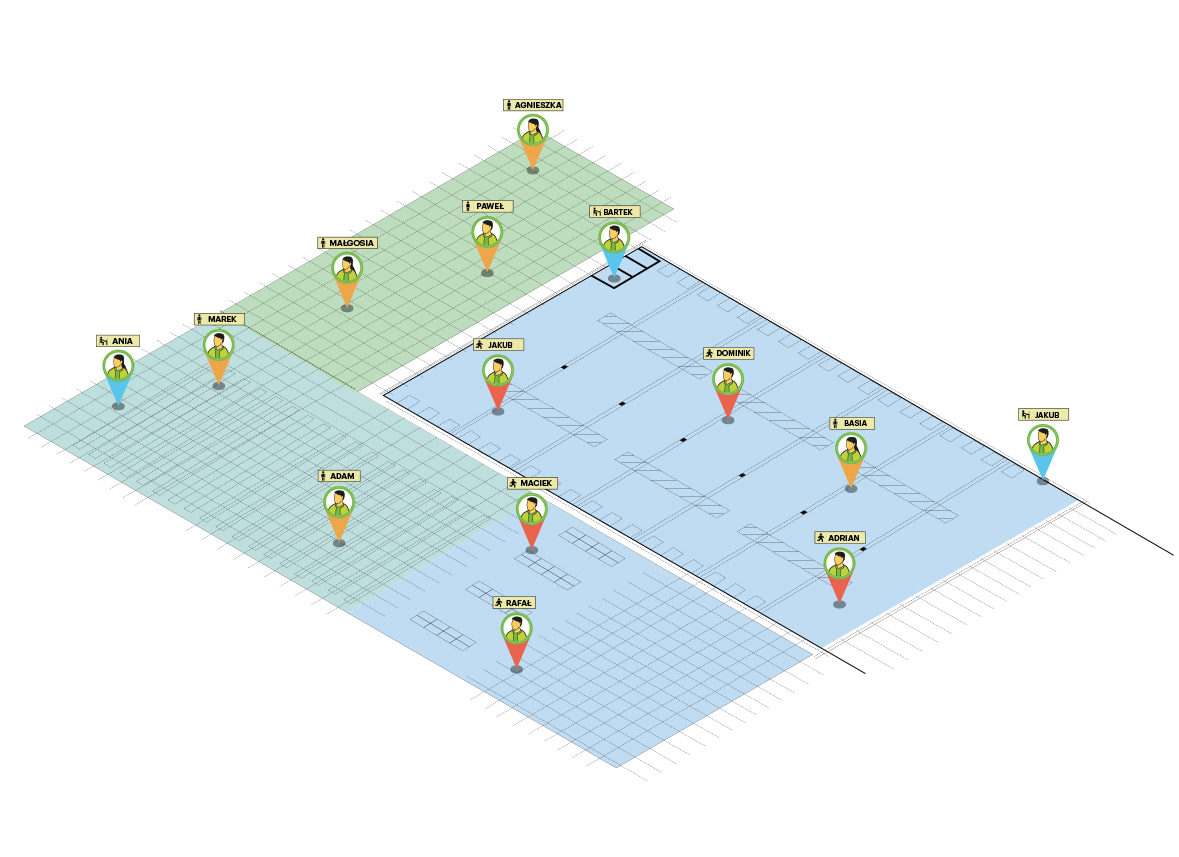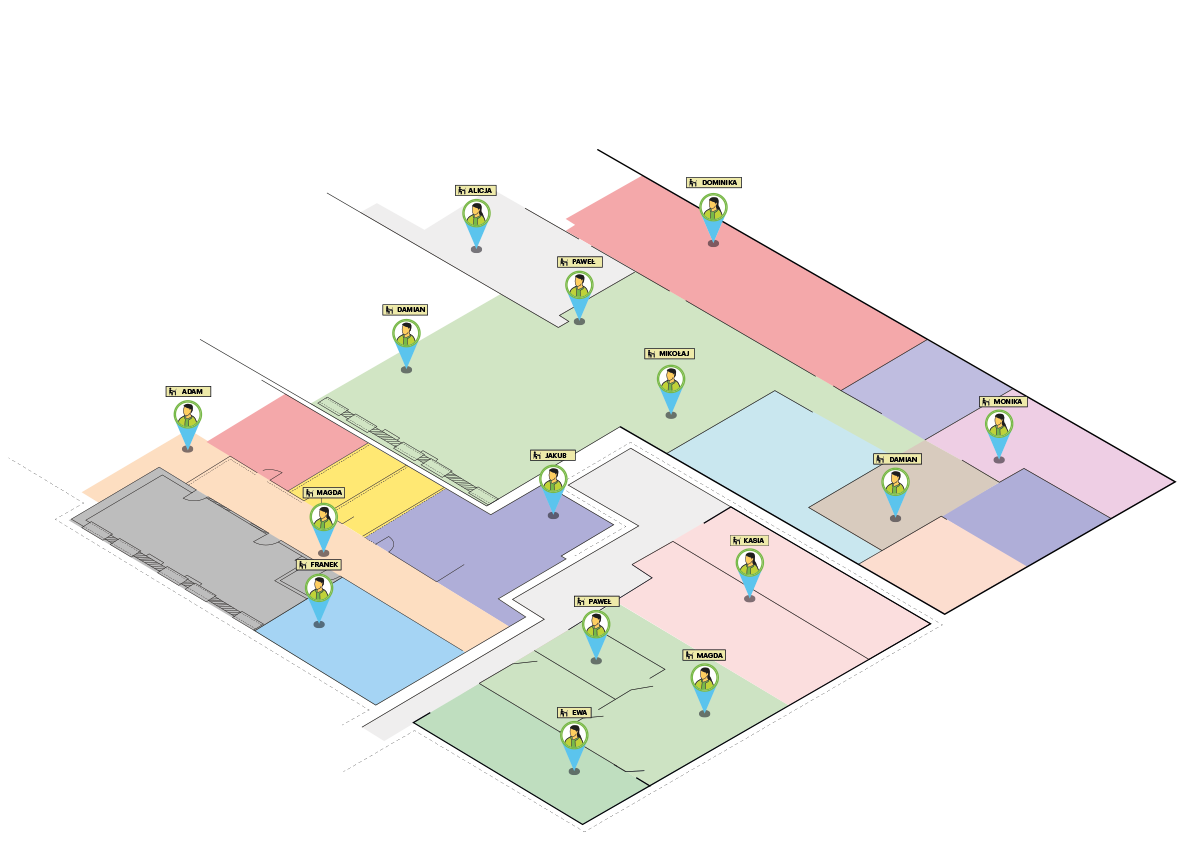The solution offered by TIMATE enables recording of the working time of a large number of employees in many locations in Poland without the need to use standard card readers set up at entrances to the company premises, warehouses, offices etc. It also allows to check the actual number of employees within a given area, which is very important information for emergency services when there is a threat of fire. Furthermore, the collaboration with TIMATE is part of Raben’s policy to support start-ups offering interesting solutions. Undoubtedly, the IoT cards and the system of receiver stations along with the software constitute an appealing tool for large and medium companies. By integrating it with other systems operating within the enterprise, one can get measurable benefits in terms of safety and efficiency – says Sławomir Pawlak, CIO in the Raben Group.





